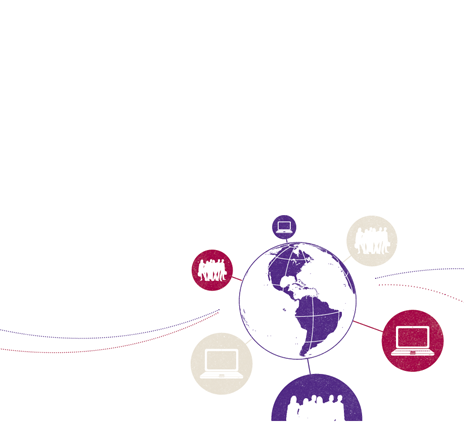-
Deals Services
The financial advisors of Grant Thornton offer customized solutions to their clients through personalized methods and services.
-
Technology
Our goal is to redefine how clients do business. With expertise in digital strategy, AI, data insights, and automation, we create personalized solutions to…
-
Strategy and Investments
The Strategy and Investments department supports businesses at strategic, operational and financial level.
-
Environmental, Social, Governance, Risk & Compliance
In the current business and regulatory environment, businesses aspire to meet today's requirements effectively, and to create value on sustainable terms.

-
Audit Services
The dedicated staff of Grant Thornton provide you with audit services such as financial statements for your business by using the HORIZON methodology.
-
Business Growth Advisory
At Grant Thornton, we recognize the need to align financial data with regulatory change, as well as the requirement for accurate financial data and consulting…

-
Corporate Taxation
Grant Thornton's tax professionals offer Corporate Taxation Services to provide advice and solutions to any issues your business may have.
-
Corporate tax compliance
The Grant Thornton corporate tax compliance specilaists possess long experience in both multinationals and Greek companies in all business sectors.
-
International tax services
Grant Thornton supports all businesses operating at the European and international level with advice on international tax matters.
-
Transfer pricing
Grant Thornton offers comprehensive pricing policy planning and tax audit support for domestic, multinational and corporate tax executives.
-
Tax Controversy
Grant Thornton provides tax audit and risk services because tax disputes are unavoidable in numerous businesses.
-
Private Client Services
In case you are an individual, Grant Thornton provides services like tax returns, transfer of wealth to future generations and expatriate taxation services
-
Indirect taxes
Learn more from Grant Thornton about our services for indirect taxes such as real estate taxes, customs, VAT and stamp duties.
-
Tax restructuring
Grant Thornton provides tax advisory services to companies undergoing tax restructuring or a change in their strategic direction.
-
Diagnostic Tax Review
Diagnostic tax review is a tax service offered by Grant Thornton to assist your organisation in identifying and assessing potential tax exposures.
-
Tax efficient supply chain planning
Get informed about tax efficient supply chain planning and how to improve your company's productivity model by reorganizing your productivity activities.
-
Global mobility strategy
In a globalized world, businesses must work seamlessly across borders. Organizations operate in multiple countries and view international expansion as a…

-
Accounting & Tax Compliance Services
Transferring non-core, yet important, activities outside the company and assigning them to specialists - external partners (Business Process Outsourcing) is the best…
-
HR & Payroll services
Grant Thornton provides specialized services in payroll management and human resources management for any type of company.

-
Banking
Grant Thornton has a dedicated financial services team that provides banking services such as tax and…
-
Insurance
Here you will find all the financial assurance services that Grant Thornton can offer to your…
-
Asset management
In Grant Thornton, asset management is a business approach that concerns assurance and…
-
Central Government
Grant Thornton provides services to central government agencies to respond immediately and…
-
Public Corporations and Organizations
Grant Thornton supports Public Enterprises and Organizations to evaluate their operations and…
-
Local Government
Grant Thornton and its qualified employees offers audit and consulting services to support local…
-
NSRF Managing Authorities and Special Services
Grant Thornton's specialized team of executives provides Technical Assistance services for the…
-
Public Health Services
Grant Thornton includes experienced professionals whose aim is to provide integrated services at all levels of…
-
Social Security Services
The public sector division of Grant Thornton provides high quality audit and advisory support services to…
-
Banking
Banking & Securities
-
Insurance
Insurance
-
Asset management
Asset management
-
Central Government
Grant Thornton provides services to central government agencies to respond immediately and…
-
Public Corporations and Organizations
Grant Thornton supports Public Enterprises and Organizations to evaluate their operations and…
-
Local Government
Grant Thornton and its qualified employees offers audit and consulting services to support local…
-
NSRF Managing Authorities and Special Services
NSRF Managing Authorities and Special Services
-
Public Health Services
Grant Thornton includes experienced professionals whose aim is to provide integrated services at all levels of…
-
Social Security Services
The public sector division of Grant Thornton provides high quality audit and advisory support services to…
-
Hotels & tourism services
Hotels & tourism services
-
Transportation
Transportation
-
Information Technology
Information Technology
-
Media
Media
-
Telecommunications
Telecommunications
Companies that are comfortable with failure are more nimble, innovative and successful, says John Harmeling, chief marketing officer at Grant Thornton in the US.
Let me give you a quick insight into one really useful thing we do here at Grant Thornton – our ‘failure talk’. When we get our senior members of the marketing department together, however brief the meeting, we always block out 10 to 15 minutes to discuss failure. A volunteer will explain how they 'failed' at something; they’ll explore what went wrong and share the lessons.
Why do we do this? Because we want to be more comfortable with failure. By talking openly, we all become more at ease with the prospect of failing in our own ventures and, in turn, it makes us more adventurous and less ruled by fear. Ultimately, we focus on failure because we want to innovate - and you can’t have one without the other.
If you have a culture that encourages people to try something new without fear of failure, then there are at least four positives.
1) You can move on quickly
An admission of failure or making the wrong decision, lets you move on quickly. I’m an American football fan and saw a brilliant example of this at my team, the Carolina Panthers. In 2010, they drafted a quarterback from Notre Dame called Jimmy Clausen. He arrived amid huge hype; he was to be the golden child. The problem was that they quickly learned he wasn’t right for the NFL (National Football League) and his numbers weren't great, which is why the Panthers soon drafted Cam Newton to replace him. This season, Newton was named most valuable player in the NFL and got the Panthers to the Superbowl. If the team hadn’t cut its losses on Clausen they’d have struggled for many seasons. An admission of failure let them move onwards and upwards. The same is true in business.
Businesses often resist a change of direction because it can be seen as an admission of failure and because they are reluctant to invest further. However, if the current situation is hampering the business, then further investment and a fast change of direction could reap benefits sooner.
2) Your vision will be clearer
Too often we stand by bad decisions for the worst reasons. We’re afraid of upsetting the person who came up with the idea, especially if they happen to be our boss. The Gambler's Fallacy and Loss Aversion are two well-documented cognitive biases that cripple investors when the value of their shares fall. If you are afraid of failure you are at risk of trying to spin every situation for the better. That’s dangerous. Only when your emotions are calm, because you're not afraid of failure, can you clearly see the positives and negatives of each scenario without distortion.
3) Ideas will flow
Employees must be free to air ideas, however large or small, sensible or crazy. They’ll only do that if they know they’ll be supported. The Media Lab at the world-renowned Massachusetts Institute of Technology sets up groups briefed to generate radical ideas. When I was at Bank of America, the bank designed a sensor that tracked the mood of customers when they entered a bank. The staff would be warned if the customer was angry or happy, enabling them to respond accordingly. We didn’t adopt it, but it’s an example of the fantastic innovation that can flow in a creative environment.
4) Success will be bigger
If you want to win big you need to take risks – even though you’ll sometimes fail. By contrast, if you're risk-averse, you'll miss out. Here’s another sporting analogy for you: in his early days, around 1918, baseball legend Babe Ruth led the American League for home runs. But he also had the highest number of strikeouts, which means a player is out. He was comfortable with this failure, knowing his ‘hit for the fences’ attitude would give him more home runs, despite the high risk of being out. It is just the same in business – it's a balance of risk and reward. Try to identify the things you are willing to fail at (or at least risk failure at) to deliver your bigger wins and overall success. This can involve making sure the focus is on the things that really matter, rather than the granular things that happen along the way.
Balance risk with opportunity
I believe you have no choice but to get comfortable with failure, to take calculated risks, encourage a culture of trial and error, and learn by sharing experiences. The key is to ensure you have effective feedback loops – re-deploying resource and investment towards those ideas that are working out. Innovate through trial and failure, be agile and nimble and instil a culture that lets everyone thrive in an environment where they are encouraged to have ideas.
We use failure talks to hone our company culture. I’d love to hear what you do- if it’s good, we'll try it!



